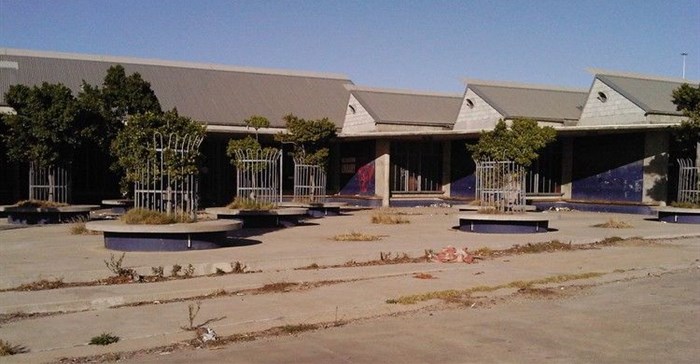
Top stories






More news


Marketing & Media
Ads are coming to AI. Does that really have to be such a bad thing?














Children from the small shoddy homes in the area often play skipping and sports games on the paved areas, or hang out next to the graffiti-adorned wall of the gallery.
The museum was closed in 2013.
It was built to honour anti-apartheid heroes but angry residents complained that money had been spent on it while they lived in squalor.
The museum, situated in New Brighton, housed hundreds of “memory boxes” containing the life stories of anti-apartheid activists, including Nelson Mandela.
The modern R22m building, which has won several international architecture awards, contrasts with the plastic and corrugated iron shacks which serve as houses for the community.
Community leader Thando Msikinya said this issue had been raised from the beginning, in 2005 when construction started.
“We are living in shacks which get flooded each time it rains … and yet the municipality spends millions of rands building a museum.”
“For over 20 years we have been waiting for decent houses. In 2005, when the museum was being built, it was promised that houses would be built at the same time. But it was all a lie to get us to move,” said Msikinya.
Protests over housing in October 2013 closed the museum as well as the library and gallery next to it. Red Location leaders have kept the site closed ever since, demanding better housing and jobs at the museum for local residents.
The building has now been stripped by people helping themselves to electrical wiring, water pipes, power sockets, fencing and wooden fittings for their shacks.
A mosaic depicting freedom fighters is missing a chunk. Bits of rubble and rubbish litter the premises.
On the closed glass door is a notice warning visitors not to enter without the presence of the Red Location steering committee chairperson. “We are not liable for whatever happens to a person that enters,” the note warns, without giving any contact names or numbers.
The museum won the 2006 Lubetkin Prize awarded by the Royal Institute of British Architects as the best new building outside the European Union.
Community leaders say they have demanded houses for years but have only received empty promises from the Nelson Mandela Bay Municipality. Mayoral committee member for human settlements Nqaba Bhanga said residents of the area would be relocated as part of a solution to the deadlock.
Nelson Mandela Bay municipal spokesman Mthubanzi Mniki told GroundUp that a budget of R21m had been approved to re-open the museum. The R21m includes:
But the local residents are not so sure. “Until we have decent houses, this museum will not open. We are sick of empty promises and we are willing to fight for our rights,” said a local resident who wanted to remain anonymous fearing victimisation.
When pressed to explain why R8m was being spent on the Rivonia sculpture when there was a much greater need for housing for the people living next to the museum, Mniki responded that the housing problem is the responsibility of the provincial and national governments. But, he said, the museum budget comes from the municipal arts and culture desk. “The idea is to promote tourism for the benefit of the local market and the city as a whole,” he said.
Article originally published on GroundUp.

GroundUp is a community news organisation that focuses on social justice stories in vulnerable communities. We want our stories to make a difference.
Go to: http://www.groundup.org.za/